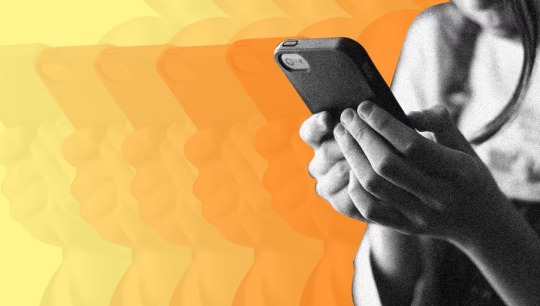#modelingbehavior
Explore tagged Tumblr posts
Text
Sometimes as a Parent, You Just Have to Be Tough and Put Your Phone Down

Sometimes as a Parent, You Just Have to Be Tough and Put Your Phone Down When my daughters were 6 and 10, I made a commitment to abstain from using my personal electronic devices—laptop and smartphone—while in their presence. I challenged myself to do this for just a month, inspired by my success with smaller monthly resolutions instead of traditional New Year’s resolutions. The Experiment At times, it was inconvenient; other times, it was downright comical. I found myself shutting my computer every time my kids entered the room and reopening it as soon as they left. When I absolutely needed to use a screen for work, I made sure to explain to them what I was doing, so they didn’t feel like they were competing with my devices for attention. This simple screen-curbing resolution turned out to be the most impactful of all my challenges that year. It made me acutely aware of how often I was ignoring my kids for the sake of my phone or laptop, and I felt we connected more deeply as a result. My daughters noticed the change, too. “I do like it,” my younger daughter said. “I feel more connected. I can’t tell your emotions when you’re talking to me while on your computer.” My older daughter echoed this sentiment, saying, “When it makes more of a difference is when I ask you a question, because it feels like you’re paying more attention, even if you were listening the same amount while looking at your phone.” Simone Weil, a modern French philosopher, once said, “Attention is the rarest and purest form of generosity,” capturing the essence of what I was discovering during my experiment. Lasting Effects That small self-challenge had a direct and significant impact on my relationship with my daughters. Conversations became more interactive and longer. While I initially maintained this habit after the month ended, I gradually became less strict, as often happens with resolutions that don’t transform into ingrained habits. Now, my kids are 12 and 17, and they each have their own screens. Modeling good technology habits is even more crucial to ensure that devices don’t become distractions or barriers to meaningful communication. Recent research supports this; a study released last summer found that parental screen use in front of children is associated with increased screen time and problematic social media use among early adolescents. To positively influence my kids’ device use, I’ve recommitted to putting my phone down and closing my laptop when they're around. This time, I’m also including my wife in this effort, as nurturing that relationship is just as important as connecting with my children. A Positive Change I even announce my intentions at times. For example, when my older daughter came downstairs with a question, I responded, “I’m closing my laptop so I can fully hear it!” This made her laugh and appreciate the gesture. We’re not even a month into this renewed commitment, but we’re already experiencing the benefits of this small yet significant change in our family dynamic. By prioritizing direct interaction and minimizing distractions, I hope to foster a more connected and meaningful family life. Read the full article
0 notes
Photo

Some one was asking me about disciplining kids the other day. I said yes my kids get the best dose of it every morning by watching me get up and go work on myself everyday. Doing the difficult easy work before every one else is up. Creating something that’s never been done and owning my results. #modelingbehavior #unbridledrunning #intentionalliving #intentionalparenting #intentionalpractice #ultrarunning #trainingforthe444 #dailypractice #dailyprayer #mentalhealthawareness #mentalhealth #veteran #wearebor #easydaywasyesterday #easyrun #runwiththesun #5amclub (at Greenbrier, Tennessee) https://www.instagram.com/p/ClrhFIGJZLx/?igshid=NGJjMDIxMWI=
#modelingbehavior#unbridledrunning#intentionalliving#intentionalparenting#intentionalpractice#ultrarunning#trainingforthe444#dailypractice#dailyprayer#mentalhealthawareness#mentalhealth#veteran#wearebor#easydaywasyesterday#easyrun#runwiththesun#5amclub
0 notes
Link

Helping shape your children's behavior is a key part of being a parent. It can be difficult as well as rewarding. While at times it can be challenging, a few key principles can help.
#childern'sbihaviour#modelingbehavior#teachchildren#childcaretips#healthychildern#familydynamics#goodfamily#lifestyle#lifestyleblog#guestpost#guestblog#contentmarketing#writeforus
0 notes
Text
SOCIAL LEARNING THEORY: Imitation and Aggression
Part 1
Part 3
The Social Learning Theory, or also known as Observational Learning (or Modeling), is “the theory that we learn social behavior (e.g., aggression) by observing others & imitating them.”
(Source: Aronson, Wilson & Akert, SOCIAL PSYCHOLOGY: The Heart and the Mind, © 1994)
In Observational Learning, children observe the people around them behaving in various ways. This is illustrated during the famous Bobo Doll Experiment. (Bandura, 1961).


In society, children are surrounded by many influential models, such as their parents, guardians & the other members of the family that the child interacts with at home, characters on children’s TV/Movies, social media, friends within their peer group and the teachers at school. These models provide examples of behavior to observe and imitate.
Children pay attention to some of these people (models) and encode their behavior. At a later time, they may imitate the behavior they have observed. They may do this regardless of whether the behavior is “gender appropriate” or not, but there are a number of processes that make it more likely that a child will reproduce the behavior that its society deems appropriate for its gender.
Through the act of imitation or observation, children learn how to behave aggressively. Therefore, the act of bullying is a learned behavior, because whatever behavior the adults show, may easily be imitated & adapted by these children. So, it is VITAL for parents/guardians/caregivers/nannies to be able to show a good example.
To know more about Albert Bandura’s Social Learning Theory, visit Simply Psychology.
#sociallearningtheory#albertbandura#socialpsychology#bobodoll#modelingbehavior#sociallearning#imitation#aggression#learnedbehavior#bullying#psychology
0 notes
Photo

Total magic Dylan! #guide #teacher #leader #generousspirit #montessorimixedageclassroom #modelingbehavior #learningthroughdoing #independence #friends #workmaterials #morningworkcycle #preparedenvironment #joyful #2goingon6 (at LePort Montessori Cobble Hill)
#teacher#2goingon6#modelingbehavior#montessorimixedageclassroom#learningthroughdoing#generousspirit#independence#friends#leader#workmaterials#morningworkcycle#guide#joyful#preparedenvironment
0 notes